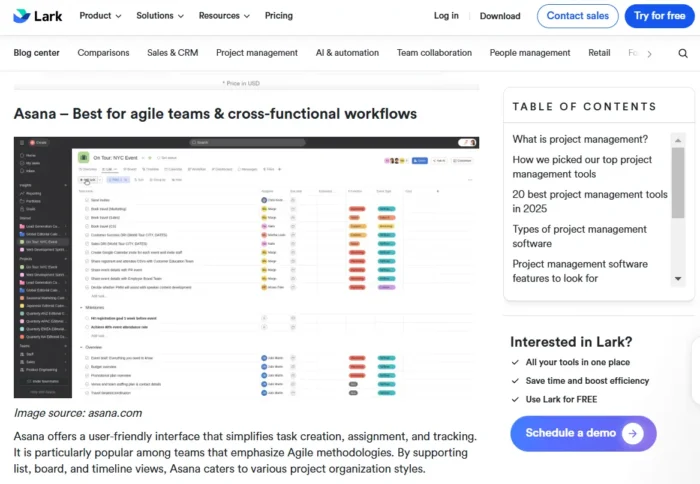When to Start Thinking About Freezing Your Eggs—and Why I Wish I Did Sooner
The more you know. The post When to Start Thinking About Freezing Your Eggs—and Why I Wish I Did Sooner appeared first on Camille Styles.

Writing this article hits close to home. Prior to 2021, I had never thought to type into Google: “when should you freeze your eggs.” It was something I never even imagined I had to consider! In my 20s and early 30s, “egg freezing” was just some buzzy new notion that, in my mind, could never apply to me. After all, don’t we spend our entire lives as young women trying *not* to get pregnant? Aren’t we taught to fully, and frankly, fearfully understand that it only takes the slightest slip in judgment or a condom to forever change our lives and futures? As a labor and delivery nurse and certified nurse-midwife, I cared for, and witnessed the bounty of, fertility firsthand every day. My career has spanned the last 11 years, and with that, thousands of births. From that experience, I know one thing for certain: Women are by and large fertile creatures!
So while I’ve always loved educating women about reproductive health, the subjects of infertility and fertility are topics I’m feeling particularly passionate about these days. Why the sudden interest and urgency? I myself have been diagnosed with primary infertility and diminished ovarian reserve (low eggs) at what feels like the young age of 35. And it’s seemed to come out of nowhere. I’m well within the age range that many women begin having babies. I’m active and health-conscious. From the outside, at least, there should be NO reason I shouldn’t be able to get pregnant. Unfortunately, though, after a year and a half and thousands of dollars spent (before any IVF treatment), my husband and I are still likely far away from the small chance that we may ever get pregnant. And that’s even with the assistance of reproductive technology.
I realized that if the potential for infertility escaped me—an expert in women’s health who has spent her entire career in the field—that I am not alone in this feeling of “WTF if only I had known?!” I also know that there are many women currently or who will soon be hit with the same news. We’re long overdue for a shift in educating, informing, and offering testing to assist women in understanding where they’re starting from as, collectively, we continue to delay childbirth into our mid-to-late thirties.
Feature image by Riley Reed.
So on that note, let’s jump right into the what, who and when of mature oocyte cryopreservation, or “egg freezing.”
But first, a disclaimer! Before anyone freaks out, let’s also realistically acknowledge that while myself and many other women are having trouble, 90% of women in the US will get pregnant without issue. But for the other 10% of us, which accounts for roughly 6 million women (!!!), it won’t be so easy. And to keep things as clear as mud, egg quality and quantity (the issue that’s often solved by egg freezing), isn’t the only piece of the infertility puzzle. Male factor infertility, PCOS, or endometriosis are other common contributing factors.
Egg quality and quantity, however, are top of mind for women who decide to delay childbearing to later in life. According to Columbia University, of those who present with infertility, between 10% and 30% have decreased ovarian reserve. So today, our focus will be how to get ahead of your fertility if you plan to start a family later in life. All to potentially spare yourself the heartache, shock, and jaw-dropping expense that comes with the very difficult diagnosis of infertility.
Age, Declining Fertility, and Life Goals: A Tricky Mix
Many of you are probably in the same place I was 7 or 8 years ago. Loving life, living up your late 20s, just beginning to really make strides in your career or higher education. Maybe you’re getting ready to jump into a year of world traveling. Perhaps you just ended a long relationship and are starting the dating game fresh, wondering if and when marriage may ever happen for you, much less starting a family. You think or know you want kids, but you also know that realistically, it’s years away. This is the case for so many modern women! Whatever your situation, the reality of rapidly declining fertility around the same time we’re ready to start a family is ever-present, but isn’t often discussed or educated on. This statement from the American Society for Reproductive Medicine (ASRM) says it well:
“For decades, women in the United States have been having children at older ages. Nationwide, the rate of first births to women ages 35–39 has been rising since the 1970s…Many factors contribute to this trend, but it is well recognized that women’s increased access to education and participation in the workplace are central. The critical periods of advancement in these pursuits usually take place when women are in their 20s and 30s, which is also the time when female fertility has reached its peak and is beginning to decline.”
Fertility and Sterility, 2014While many women (sensibly) wait to find the right partner, at the right time, with the right kind of savings, job, lifestyle, and acceptance from society and our families, our egg supplies are diminishing without warning. The dichotomy of starting a family not too late but not too soon all while doing it in the right order with the right person is hard to navigate. Plus, it’s nearly impossible to pin down. We can’t time life perfectly, but when we don’t, there can be irreparable consequences for many. It’s a lot of pressure and totally unfair, but it’s the truth for many individuals and couples.
Furthermore, until 2014, “egg freezing” was considered an experimental treatment on top of being seriously cost-prohibitive. The average cost of oocyte cryopreservation ranges from $6,000 – $15,000. (Note that this doesn’t include storage fees, which accrue on a yearly basis.) All without a guarantee you’ll actually need those eggs or not be able to conceive on your own. It begs the question: What’s the price of our own eggs and one’s ability to parent a child made of our own DNA? How worth it is it for you?
A Snapshot of Fertility Over Time
Enough speculation on the obvious social and lifestyle realities of starting families for women in America. Let’s dig into the data around declining fertility with time/age and what’s really going on. There seems to be a gap in knowledge among young women on what fertility realistically looks like for us in our 30s. The reality is that, if you choose to wait until your mid-thirties to conceive, you have a 1 in 10 chance it won’t, or may never, work. That’s our reality and it’s unfortunately under-discussed. Knowledge is power, and we have options.
The graph below represents egg count in relation to age. Interestingly, women are born with all of the eggs they will ever have, averaging between 1 and 2 million total at the time of birth! Through life, this egg supply slowly declines month by month. By the age of 20, the average woman has roughly 400,000 remaining eggs and is losing hundreds each cycle in the process of ovulation (which you can learn more about here). Typically, by age 30, a woman has half the eggs she had at age 20 and by age 35, half of that. The most rapid decline of eggs occurs between age 30 and 40. (Fertility and Sterility, 2014). So we have the best chance to get pregnant in our teens, twenties, and early thirties.
An additional important, but less well-known factor in infertility is egg quality. By the time a woman is 35, only 55% of her eggs will be genetically normal and her chances to conceive each month are now just 15-20% per cycle. (American Society for Reproductive Medicine). This is why you may have heard of it “taking a while” to get pregnant. As we age, it’s not uncommon to try for up to a year as well as have more miscarriages. The graph explains egg quality over time.
Risk Factors for Decreased Ovarian Reserve
According to Women and Infants Hospital, the following are risk factors that may contribute to diminished or decreased ovarian reserve and quality.
Cigarette smoking Genetic abnormalities in the mother (fragile X or other X chromosome abnormalities)Aggressive medical treatments such as radiation for cancerOvarian surgeryEndometriosis Idiopathic causes (meaning there is no apparent cause)Preventative Planning: Have Your Fertility Checked
So what do we do about it?! I recommend getting a snapshot of your fertility checked. If you’re approaching your 30s and know you want a family but don’t know when it might happen for you, don’t delay. Try the following:
Test your egg counts in your mid-to-late 20s and again in your early 30s to be sure there’s no concern with waiting to conceive. I honestly wish all OB/GYN’s or primary practice providers would recommend this or at least start a conversation.Testing fertility can be done easily with a series of labs and potentially also an ultrasound of your follicles. You can request labs through your OBGYN or women’s health provider. You can also easily do it through at-home testing companies such as modern fertility. Pro-tip: Modern fertility testing accepts HSA or FSA account payment!If your numbers look low or abnormal at all, address them as soon as possible. Schedule a consultation with a fertility clinic or women’s health provider to discuss exactly what is going on. They can share potential recommendations for options like freezing your eggs if you would prefer that over donor eggs later in life.
What Kind of Benefits Are You Working With?
You may have benefits that will help you with the financial piece of egg freezing if you want to or need to. Things to consider:
State coverage. Coverage for infertility varies state by state. Currently 17 states have some kind of infertility coverage. I’ve heard of more than one couple moving states to avoid the extremely high cost of IVF or egg freezing. If moving is an option, it may save you thousands of dollars.Check your health insurance, and if you’re partnered, check theirs too! This can easily be done by calling your insurance company. It may be well worth it for you to switch plans or even find a job that covers egg freezing if you have that flexibility. Many more progressive companies offer to cover egg freezing and/or fertility treatments. Know your options!
Consider international options. If you have no coverage for fertility and feel the cost of fertility care in the United States is cost-prohibitive, consider international options. Many couples or women choose to travel to Mexico, The Bahamas or other countries that offer these services for a fraction of the price. Using a low-cost clinic in the United States is also a good option. With this all in mind, don’t forget to do your research. Not all clinics are created equal and we are talking about major hormones, injections, and surgery. Be sure you trust the doctor you choose and any clinic abroad you use has a good reputation of safety. This can be a game changer for many couples who can’t afford traditional care in this country.
How Do I know if I’m Dealing With Infertility?
Don’t wait too long to seek help. Time is precious when it comes to fertility, egg count, and quality. If you’re over 35 and have been having unprotected sex for 6 months or more and have not conceived, you qualify to see a reproductive and infertility specialist. If you’re under the age of 35 and have been trying for a year without success, you also qualify. Additionally, if you’ve had multiple miscarriages (two or more), it’s a good idea to see a doctor for a workup for certain auto-immune and bleeding disorders that can increase the risk of miscarriage/stop pregnancies from continuing healthfully. Don’t be afraid to trust your gut either! I knew after 3-4 months of trying that something was wrong and was able to get a head start on my journey into infertility. While unfortunate, I’m glad that we know what we’re dealing with so we can set realistic expectations.
Egg Freezing to Level the Playing Field
Choosing a career, starting a family, and planning for the future with perfect timing doesn’t have to feel like you’re carrying the weight of the world while you watch the clock tick away. Freezing your eggs or at least exploring your options and making informed decisions while you’re young could be your key to freedom. It can help you choose wisely and move through the world with a little room to breathe. Women shouldn’t have to make all of these big decisions in a rush. I wish you all the best and hope that this article will help at least one person make a few decisions that lighten their load. It’s a big one we bear as women. I’ll leave you with this quote from the Journal of Fertility and Sterility.
Planned OC may also promote social justice by reducing the obstacles women currently face because their reproductive window is smaller than men’s. By extending the time when women may start a family, planned OC can lessen the effects of educational and workplace constraints that disparately burden one sex; thus, oocyte cryopreservation can contribute to equality of men and women
Fertility and Sterility, 2014Refreshing, right?

 Lynk
Lynk 






























